Kim's Video is back — and Saddle River's Yongman Kim would like to show you a thing or two
Immigrant stories are as old as the movies.
The fish-out-of-water is a classic character — whether that fish is named Charlie Chaplin ("The Immigrant," 1917), Don Corleone ("The Godfather: Part II," 1974), or Jacob Yi (Steven Yeun), the Korean dad who resettles with his family in rural Arkansas in the Oscar-winning 2020 film "Minari."
You'll find all three of those stories — plus 50,000 others, give or take — in what must be one of the largest single video collections in the world, assembled over decades under the auspices of Saddle River's Yongman Kim.
Movie news:
'Leave the gun, take the cannoli': Why iconic 'Godfather' line is key to the entire movie
Oscar-nominated 'Minari' is a movie for our moment | Beckerman
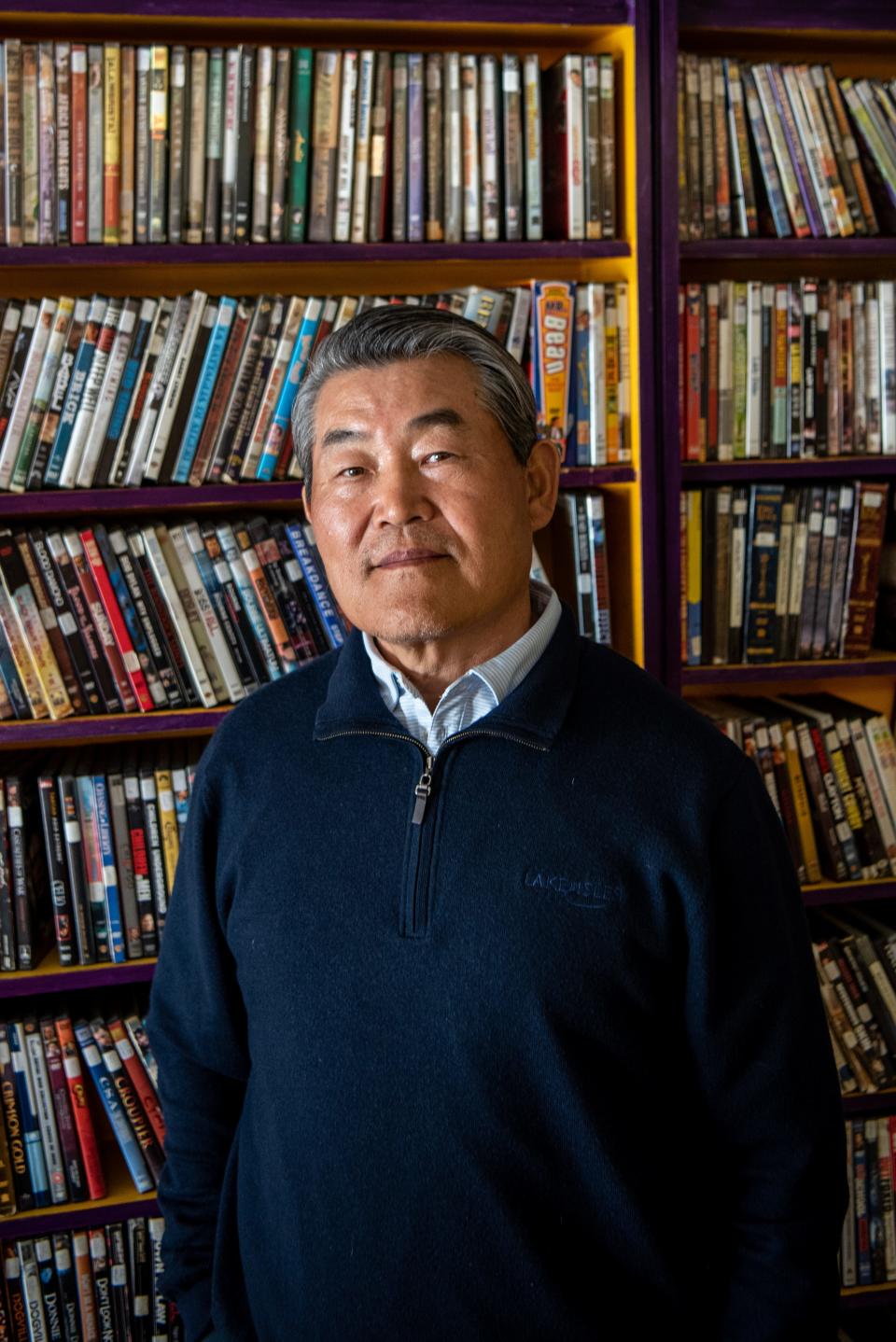
His immigrant story — the story of Kim's Video and Music, a New York institution for 27 years — is a saga as fascinating as any in his films.
"When I was sworn for my naturalization, to become a citizen, I didn't want to be one out of a million other American-Americans," said Kim, originally from Korea, and a Bergen County resident for the last 29 years.
"I wanted to keep my heritage— my Korean background," he said. "That, I thought, would be my competitive edge."
But before telling his story, let's fast-forward to the happy ending. Kim's Video and Music is back.
Welcome home
It had been gone for many years. The last of the Kim's outlets closed in 2014. But now Alamo Drafthouse Cinema in lower Manhattan, one of a Texas-based chain of beer-and-movie theaters, has made arrangements to warehouse and lend some 55,000 titles from Mondo Kim's, the largest of 11 now-defunct Kim's video stores that flourished starting in 1987 in Manhattan.
Since March 31, Alamo has made 20,000 DVDs and VHS tapes available to consumers to borrow — free of charge, and not limited to Manhattan residents.
That's about one-third of the total collection. But it's about three times as many as Blockbuster, Tower, or any of the other defunct video chains that, like Kim's, fell victim to the streaming revolution of the 21st century.
"Kim's Video became very popular, as a kind of alternative to the mainstream video store," Kim said.
The new Kim's Video at Alamo Drafthouse, film fans will be happy to know, is very much like the old Kim's Video.
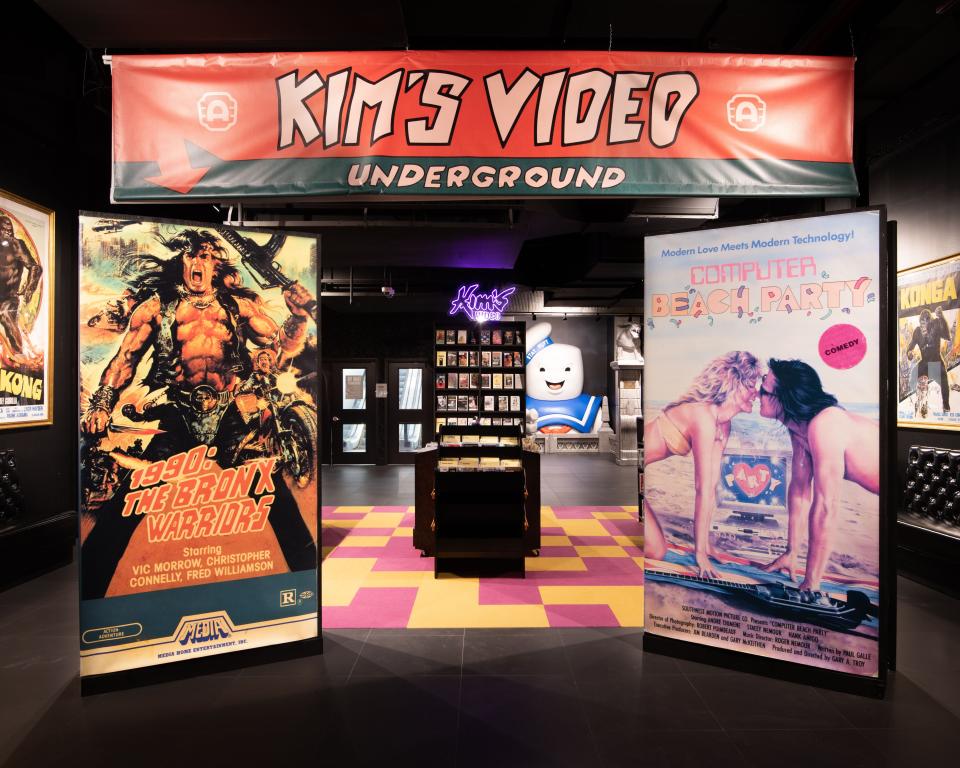
It retains the unique character that made Kim's the last word for connoisseurs and cultists: the hangout for people like Martin Scorsese, Daniel Craig, mayor Ed Koch, and Quentin Tarantino. "Quentin Tarantino was almost living at Kim's," Kim said.
They, like a thousand other film fiends, went to the Kim's locations on Avenue A, St. Mark's Place, Bleecker Street, and uptown Broadway — among other places — for the kinds of movies they couldn't find anywhere else.
Not just popular titles, like "Jurassic Park" or "Star Wars." Not just classics like "Children of Paradise," "The Seven Samurai," "Potemkin," or "Jules and Jim." Not just the garden-variety cult films like "Mondo Cane." But deeply unusual, often deeply strange stuff. Forgotten gems, oddities, exploitation films. Esoterica so esoteric it leaves even the most knowledgeable film scholars scratching their heads.
Odd film out
"There are directors I've never heard of that have entire shelves dedicated to them," said Nick Prueher, curator of Kim's Video at Alamo Drafthouse.
"There are genres I've never heard of that have whole shelves to themselves," Prueher said. "Nunsploitation. Those are exploitation movies usually set in a convent. Definitely sex and violence. There is a category called Rollin' with the Homies. All roller-skating movies. We have one called Monkey Business. All ape-costume movies. We have one section called demonic babies. That's a surprisingly robust category."
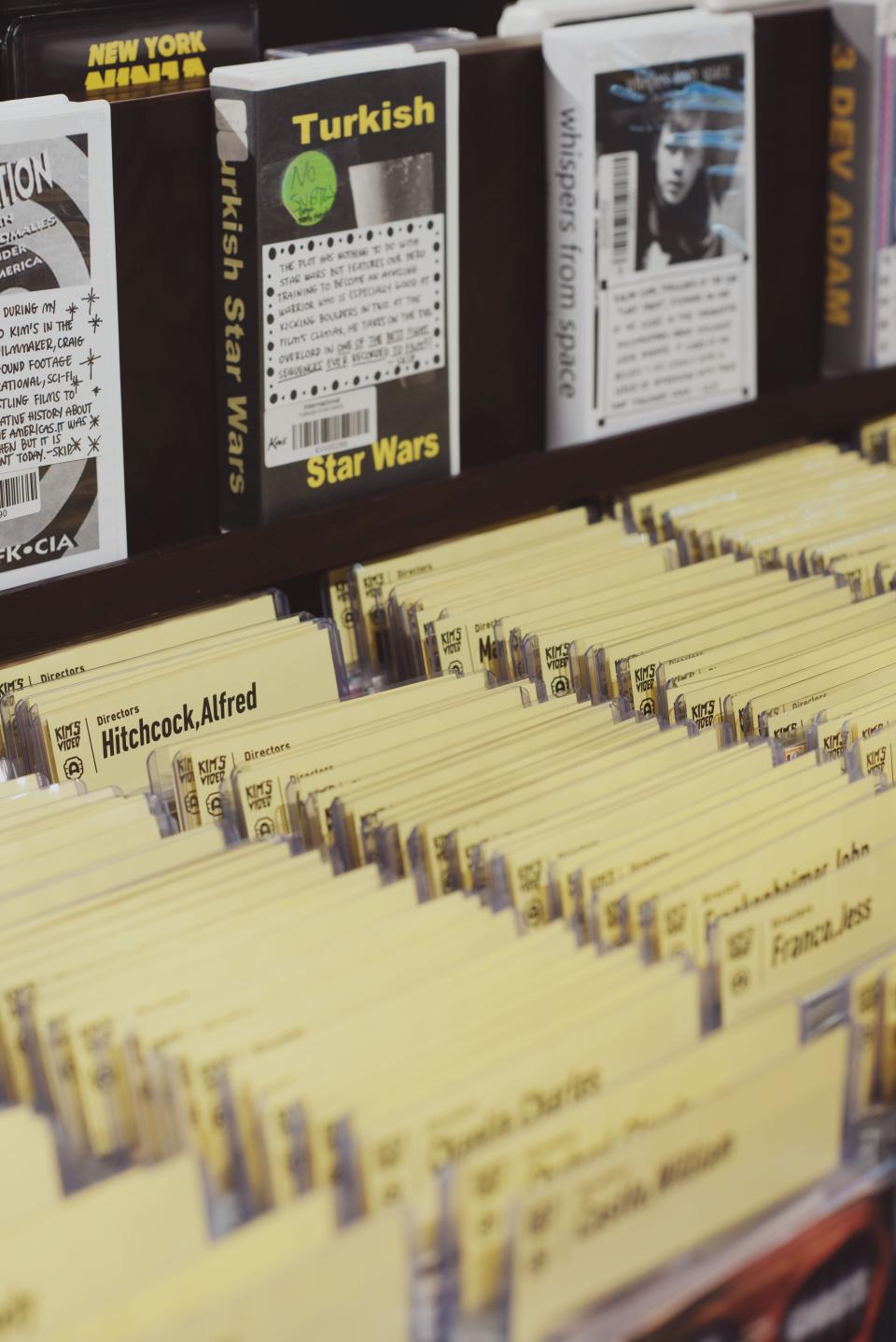
For $20, customers can also rent DVD and VCR players — since many of us, in the wake of Amazon Prime and Netflix, no longer have this retro technology.
"This has far exceed expectations," Prueher said. "We found we're actually doing good business with the rentals. Though the rentals are free, so I don't know if business is the right word."
For Kim, this is a consummation devoutly to be wished.
He was concerned, following the demise of the Kim's chain, that his thousands of films wouldn't be available to the general public. He'd donated a chunk of them to Ramapo College, and other large portions to Columbia University and several Korean universities. But none of these places offered general access.
"Whenever I donated to institutions, my problems was, they cannot offer to the public to use their collection," Kim said.
Not a good thing, for a man who has dedicated his life to bringing people and movies together.
"Myself, I'm a huge film fan," he said. "I used to see a lot of classics, even when I was 10 or 15."
Growing up at the movies
Kim is from Kunsan. It's a port city in Southwest Korea that numbers, among its other attractions, a U.S. Air Force base. American movies were shown there. And those, in tandem with the Korean movies and other European and Asian films he saw as a kid, got him hooked on cinema.
"The first time I saw an American film was the Charlie Chaplin silent film 'Modern Times,' " he said. "I was 8. I think I saw it more than 30 times."
When Kim came to the U.S. in 1979, he settled in Alphabet City, the district of letter-streets in lower east side Manhattan that was then — as now— a hangout for artists, immigrants and other people whose common denominator was no money. Living there, then, was at least cheap.
"I used to live on Sixth Street, between Avenue A and B," he said. "Can you believe how much I paid in rent for a two bedroom apartment there? I used to pay $230. I paid $400 for a 1,000-square-foot store on Avenue A. Now it's untouchable down there, in terms of price."
It was a grungy, not to say dangerous, neighborhood then, Kim recalled.
There were drug addicts. There was a community of homeless people camped out at Tompkins Square Park, culminating in a riot in 1988 when police tried to dislodge them. But there were also strivers, scene-makers, and newly-arrived citizens — not just from Korea, but from Poland, Yugoslavia, and other Eastern bloc countries. And they, like the rest of us, were looking for a little entertainment.
"I always think, how can I make myself distinctive," Kim said. "I wanted to offer something different."
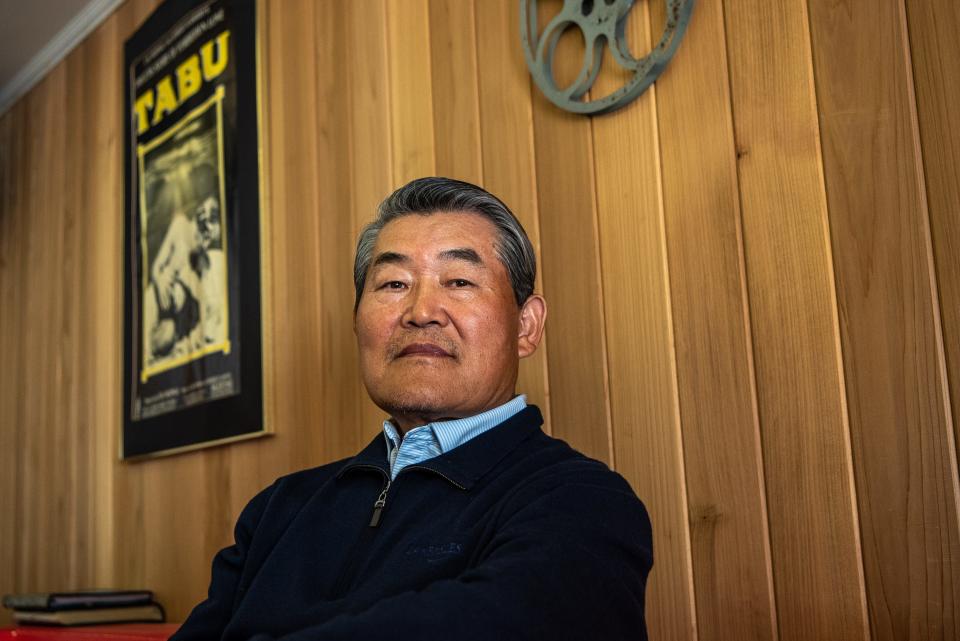
In 1986, Kim opened Kim's Cleaners, a dry cleaning store, at 99 Avenue A. But he reserved a niche for videos, right in the front of his shop.
"The idea was for people to come by and drop off their cleaning, and inevitably, they cannot avoid the film display on the wall," he said. "So they come and pick up a movie at the same time. That was the idea, and it worked out really well."
From this evolved Kim's Video, which opened in 1987. The name was important, a matter of cultural pride. "Only a Korean has the last name Kim," said the entrepreneur, who has also opened Kim's supermarkets. Kim's grocer's, and other businesses under that name.
"Anybody sees Kim, they can tell immediately, that's Korean," he said. "It's a very typical last name. One third of Koreans are Kim."
A lot of his films in those early days, naturally, were Korean.
"I knew there were a lot of great Korean films that had never been introduced to the US," he said. "So I went to the Korean Cultural Center and rented a lot of Korean movies. Back in the 1980s, they didn't have translations. So we did it in my office. We translated the videos of Korean films. We added the subtitles."
Broadening out
But Kim also went out of his way to cater to the other constituents in his neighborhood — the Eastern European immigrants, art students, and hipsters who were looking for something a little different than the next "Rambo" movie. And so Kim's began to acquire a catalog of European films, underground films, oddities of all kinds.
"I went to the Czechoslovakian, Yugoslavian, Hungarian and Polish cultural services, and they were very happy to rent me their movies, which were free," he said. "I didn't pay anything. No limit. They gave me a whole bunch of really good movies."
That's how Kim's Video and Music evolved, eventually splitting off into 11 stores over the years — always acquiring more and more films as customers requested offbeat titles, and a knowledgeable staff of film experts made recommendations (former staffers include filmmakers Robert Greene, Todd Phillips and. and Alex Ross Perry).
That's what makes a video store — almost a forgotten institution, now — superior to the streaming you do in your living room, Kim said.
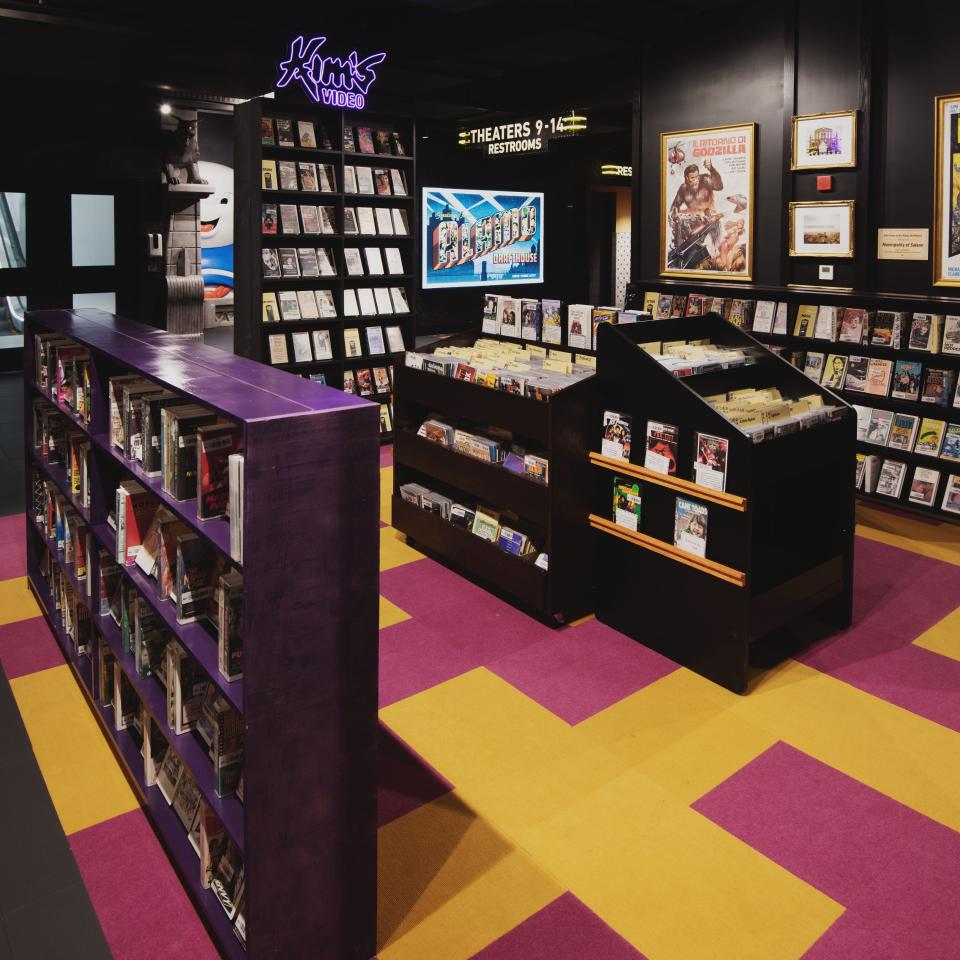
"It's a gathering place," said Kim, himself a filmmaker. "The video store is the best place that people can come and talk about every topic — not just film, but art and politics and social topics. All of a sudden, that's been disappeared by the technology."
The return of Kim's video is a tale almost as extraordinary as the creation of it. It will be told, at length, in an upcoming documentary by filmmaker David Redmon.
Suffice it to say, the inventory of 55,000 titles from Mondo Kim's on St. Mark's Place in the East Village, the largest of the collections, was sold — after complicated negotiations — to the town of Salemi, Sicily, whose government agreed to honor Kim's stipulations that the entire collection would be preserved intact and be made available to the general public.
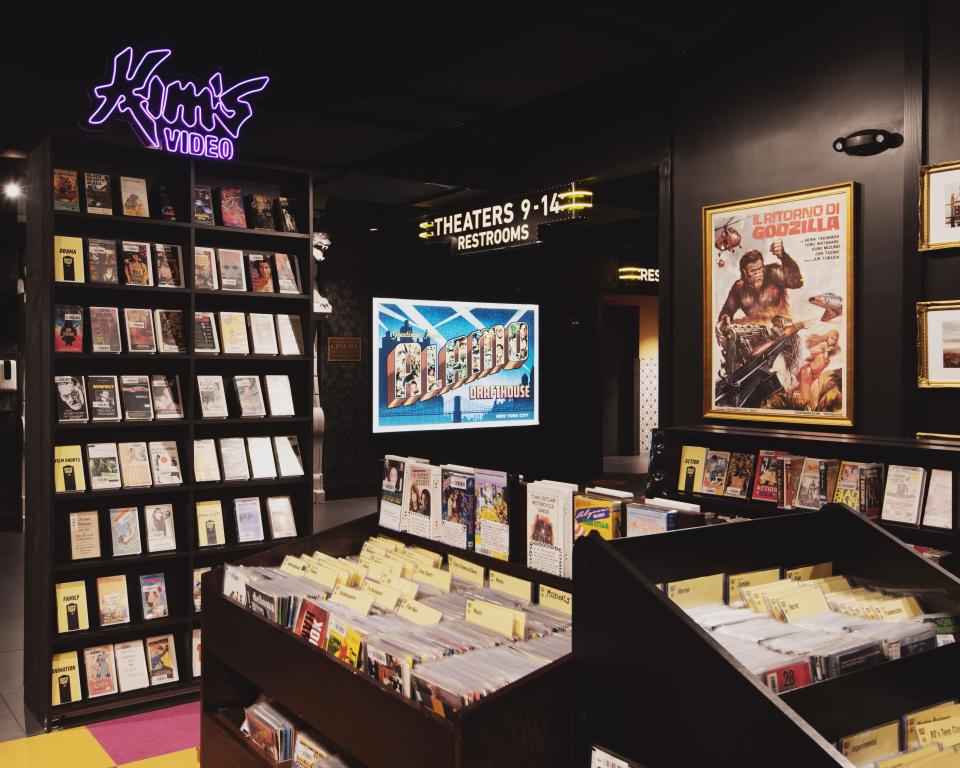
This last, at any rate, didn't happen. And when the town's government became involved in a political scandal, it became clear that the films might be better off someplace else. "It's a very interesting story," Kim said. "As you can imagine, there's a lot of complexity."
Coming home
A whole second series of negotiations involving Kim, the town of Salemi, and Alamo founder Tim League has brought the films back — leased — to U.S. soil.
"The boxes got shipped on cargo boats across the ocean, and made the journey back to lower Manhattan," Prueher said.
America's movie culture has changed a lot since Kim first set up shop in Alphabet City.
Not only are films now streamed rather than shown, but Korean cinema — once unknown to most non-Koreans — is now the apple of the world's eye, with such titles as Bong Joon Ho's Oscar-winning "Parasite" (2019) and the hit TV series "Squid Game."
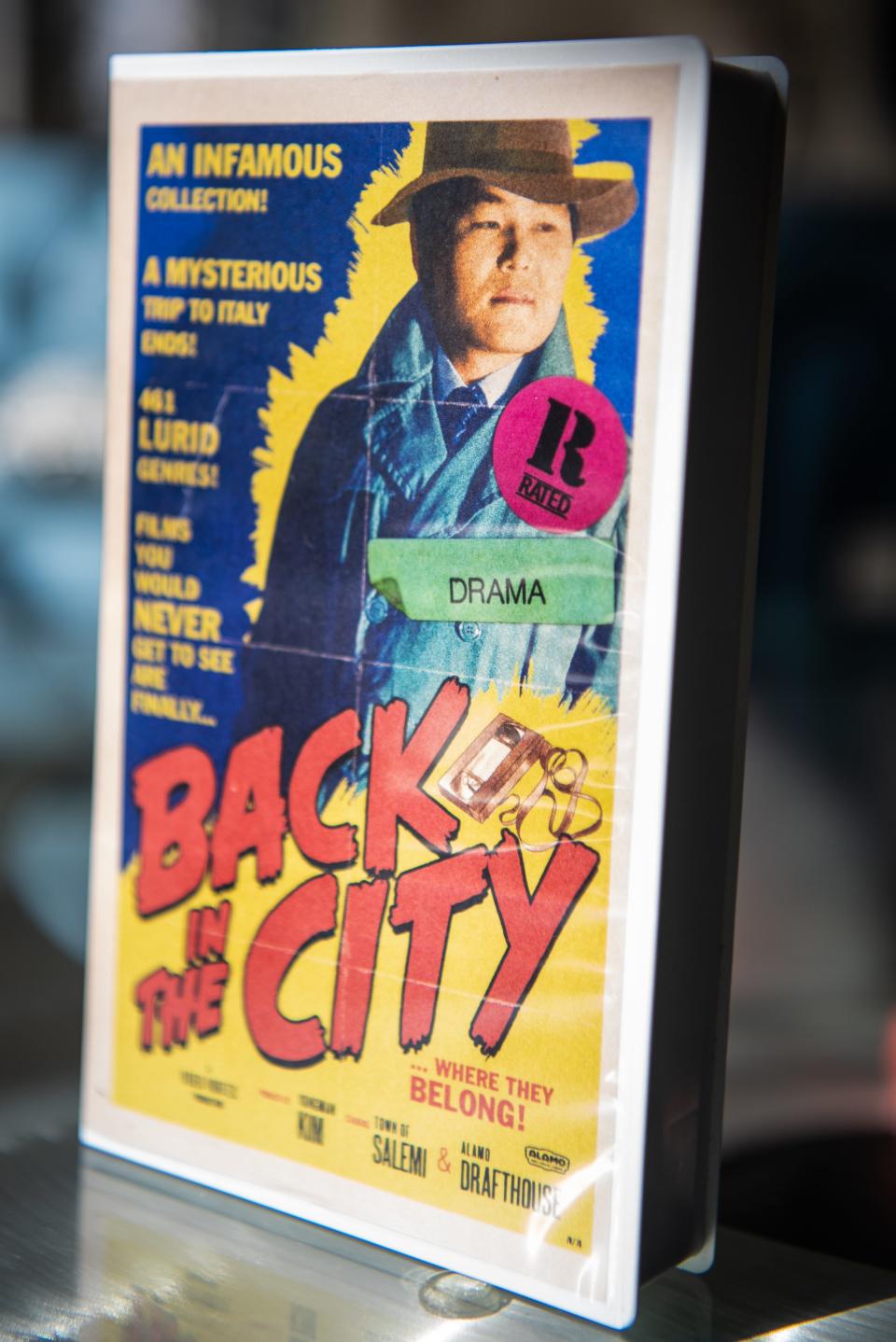
Kim isn't surprised. Koreans, he says, are a nation of storytellers. It was just a matter of time — and opportunity.
"Koreans, of my generation, had a little different cultural experience from American kids," he said. "You would sit on the leg of your grandmother, or mother, and hear stories. We grew up with a lot of stories. They were the kind of stories we can always visualize as we hear. This sense just kept building into Koreans' hearts and minds that someday, they can be connected to the creative product. This is one answer to why Koreans are so creative now. This kind of tradition continues from generation to generation."
Meanwhile Kim, a Saddle River resident since 1993, has fathered a new generation of his own. With his wife Junghi, he's brought up four children in Bergen County — now grown. Their names are Iron, Silver, Pearl, and Woody.
The names are a nod to his own immigrant beginnings — and his belief that everyone has a unique contribution to make.
"I wish them to all to become unique persons, like those materials," Kim said. "Just as I wanted to differentiate myself, when I was sworn as a US citizen. I wanted my children to continue my spirit, this traditional Korean spirit, to be different — and be positive material for their homeland."
Jim Beckerman is an entertainment and culture reporter for NorthJersey.com. For unlimited access to his insightful reports about how you spend your leisure time, please subscribe or activate your digital account today.
Email: beckerman@northjersey.com
Twitter: @jimbeckerman1
This article originally appeared on NorthJersey.com: Kim's Video is back and inside Alamo Drafthouse in New York

